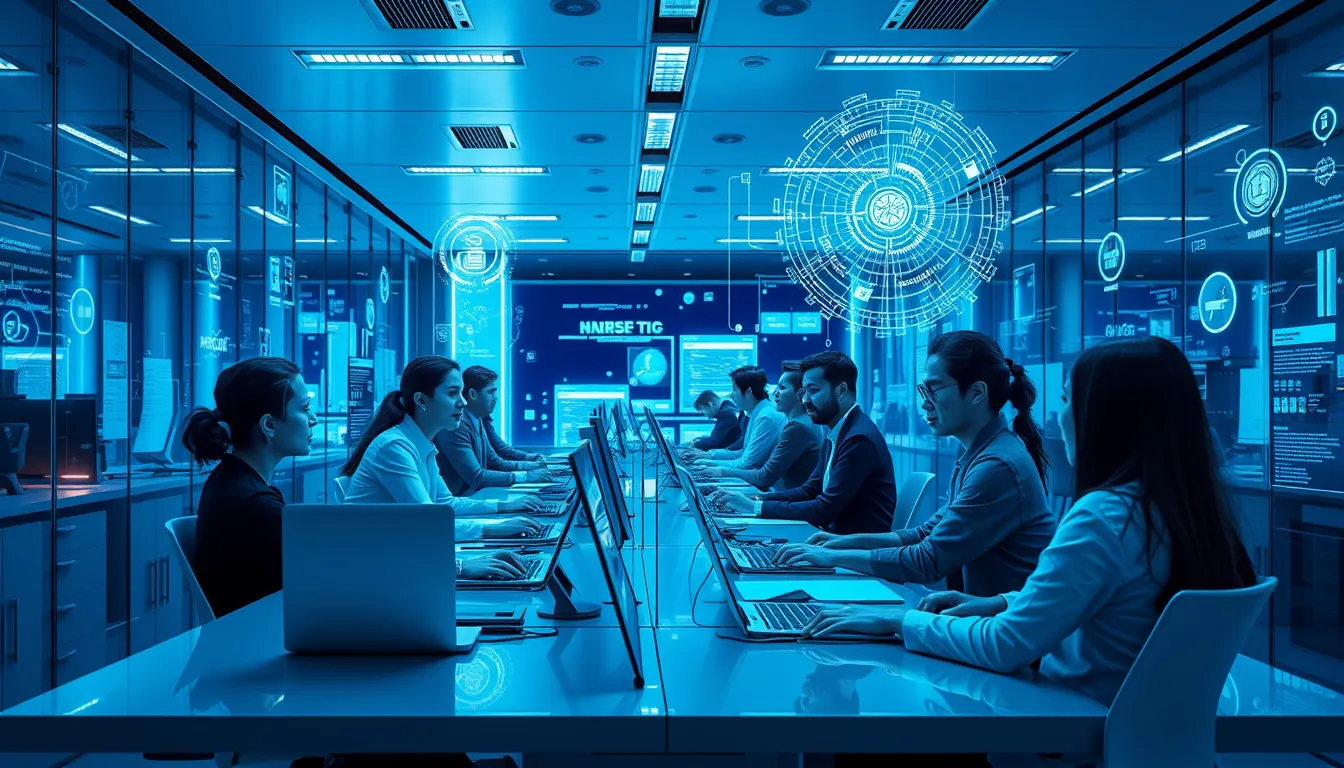Now Reading: Artificial Intelligence in the Workplace Empowers Growth
-
01
Artificial Intelligence in the Workplace Empowers Growth
Artificial Intelligence in the Workplace Empowers Growth

Artificial Intelligence in the Workplace Empowers Growth
In today’s fast-paced global economy, artificial intelligence in the workplace is not just a buzzword; it has become a transformative force reshaping how knowledge workers perform and innovate. As industries embrace digital transformation, professionals are continually adapting by gaining new skills, improving data literacy, and harnessing the power of machine learning fundamentals. This evolving landscape encourages continuous learning for AI adaptation, ensuring that every employee remains competitive and ready for change.
The Rise of Artificial Intelligence in the Modern Workplace
The integration of artificial intelligence in the workplace has paved the way for a digital revolution in many sectors. Companies are increasingly leveraging AI for higher-order functions, freeing employees from monotonous and repetitive tasks. By automating routine processes, artificial intelligence enables professionals to focus on strategic thinking, complex problem-solving, and fostering innovation. With this shift, upskilling and continuous learning have taken center stage as critical tools for future success. This digital transformation not only boosts efficiency but also enhances decision-making processes, making organizations more agile and responsive to market demands.
Harnessing AI: Upskilling and Continuous Learning
For knowledge workers, staying ahead in an AI-driven environment means embracing continuous learning and upskilling. Here are some actionable strategies:
- Enroll in courses that cover machine learning fundamentals and digital tools to understand how artificial intelligence in the workplace impacts your industry.
- Enhance data literacy to make informed decisions and interpret AI-generated insights accurately.
- Develop soft skills such as creativity, communication, and teamwork which remain unparalleled in human-centric tasks.
Continuous learning for AI adaptation is not just about acquiring technical skills; it is about fostering a mindset that is open to change and innovation. Organizations that invest in training and development programs create cultures where employees are motivated to learn and grow, ensuring long-term sustainability and competitive advantage.
How Knowledge Workers Can Thrive with AI
One of the key long-tail queries in today’s workforce is how knowledge workers can thrive with AI. The answer lies in a balanced approach that integrates technology with human expertise. By leveraging artificial intelligence in the workplace, professionals can transition from being mere executors of tasks to becoming strategic partners in decision-making. For example, AI-powered analytics tools can sift through vast amounts of data, offering insights that enable workers to focus on creativity and strategic planning.
Adopting AI is also about recognizing its role as a collaborative tool rather than a replacement. Knowledge workers benefit from adopting AI by reallocating time from routine, operational tasks to more analytical and innovative projects. This shift not only enhances personal productivity but also contributes to the overall growth of the organization. Furthermore, the ability to seamlessly integrate AI processes with everyday workflows ensures that employees remain crucial to business success and innovation.
Challenges and Opportunities in an AI-Driven Era
While the transformation brought by artificial intelligence in the workplace offers significant benefits, it also poses challenges. Some knowledge workers may feel overwhelmed by the rapid pace of technological change and the constant need for learning. However, these challenges are counterbalanced by opportunities to upskill and gain competitive advantages in their respective fields. An essential element in tackling these obstacles is fostering a supportive environment focused on digital transformation and continuous learning.
Organizations must invest in training and create interdisciplinary teams that combine human ingenuity with AI efficiency. This approach ensures that technical and soft skills develop hand in hand, preparing employees for future challenges. Companies that successfully bridge this gap not only enhance internal productivity but also set new benchmarks in the industry. Through strategic investments in technology and human capital, businesses can streamline operations while nurturing innovation and creativity among their teams.
Conclusion: Embracing the Future of Work
To sum up, the influence of artificial intelligence in the workplace cannot be overstated. Its integration is catalyzing a shift in the professional landscape, where continuous learning, upskilling, and digital transformation are key. Knowledge workers are encouraged to view this change as an opportunity to evolve and excel. By embracing lifelong learning and leveraging AI for higher-order functions, individuals can secure a future that harmoniously blends technology with human insight.
The future of work is bright for those ready to adapt. When artificial intelligence in the workplace is seen as a valuable ally, rather than a disruptive force, the path to professional growth, innovation, and job security becomes much clearer. Now is the time for professionals to invest in continuous learning, enhance their digital skills, and step confidently into a future driven by intelligent technology.

























